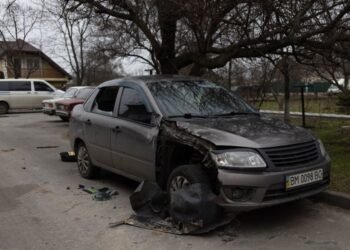Truck accidents often result in complex legal battles, as determining fault can involve multiple parties and require thorough investigation. If you are navigating a truck accident case, understanding the key elements for proving fault is critical to building a strong claim. Below are some important steps to consider.
Gathering Comprehensive Evidence
Proving fault in a truck accident relies heavily on the evidence collected at the scene and during the investigation. Items such as photographs of the accident site, the position of the vehicles, and any visible damages provide crucial details. For example, consulting with a Fort Worth Truck Wreck Lawyer can help ensure that evidence like traffic camera footage and police reports are included in your case. Witness testimonies and black box data from the truck can also provide clarity on how the collision occurred.
Gathering medical records and documenting your injuries are equally important. These records demonstrate the severity of your injuries and establish a timeline that can link the accident directly to the damages suffered. Without comprehensive evidence, it becomes more challenging to prove liability.
Determining Liability in a Truck Accident
Unlike car accidents, truck accidents often involve multiple parties who may share liability. The driver may be at fault for negligence, such as driving while fatigued or distracted. However, liability may also extend to the trucking company, maintenance providers, or manufacturers of defective parts. Establishing a chain of responsibility involves a detailed review of driver logs, employment records, and maintenance schedules to identify all accountable parties.
For instance, if a trucking company encouraged the driver to exceed federal limits on hours of service, they could be held liable. Similarly, maintenance providers may bear responsibility if their failure to perform proper inspections contributed to the accident.
Highlighting the Role of Negligence
Showing that the truck driver or another involved party failed to meet their duty of care is critical. Common examples include speeding, reckless driving, or failure to adhere to safety regulations. Evidence such as traffic citations, violations of federal trucking laws, or expert analysis of the accident can demonstrate negligence and support your claim.
Negligence isn’t always straightforward to establish. It may require the testimony of an expert who can analyze driving patterns, weather conditions, or the vehicle’s braking system to confirm whether proper care was exercised. This analysis adds credibility to your case, making it harder for the defense to dispute your claims.
Working with Legal and Industry Experts
Truck accident cases benefit from the expertise of legal professionals and industry specialists. Lawyers with experience in truck accident cases can connect you with accident reconstruction experts who analyze the mechanics of the collision. Medical professionals and economic specialists can also provide evidence of the physical, emotional, and financial impact of the accident. These combined efforts strengthen your case and present a comprehensive argument.
Expert witnesses play a vital role in explaining technical details to a jury or during settlement negotiations. Their insights help bridge the gap between complex data and the impact on your life. With a strong legal and professional team by your side, you stand a better chance of securing a favorable outcome.
Proving fault in a truck accident case requires thorough investigation, detailed evidence, and an understanding of legal and industry standards. Each step you take brings you closer to securing the compensation you deserve, helping you move forward after a challenging experience.










